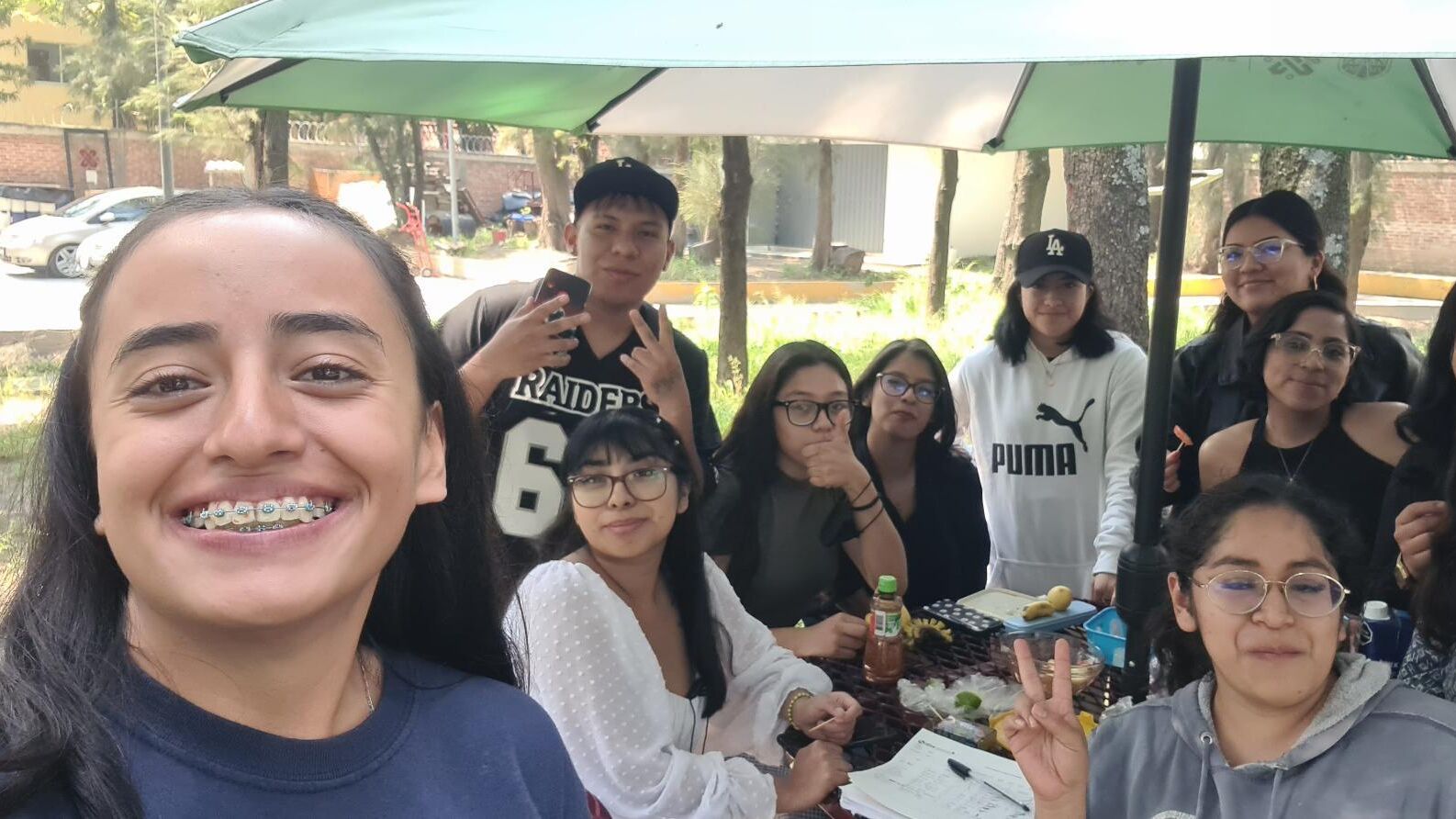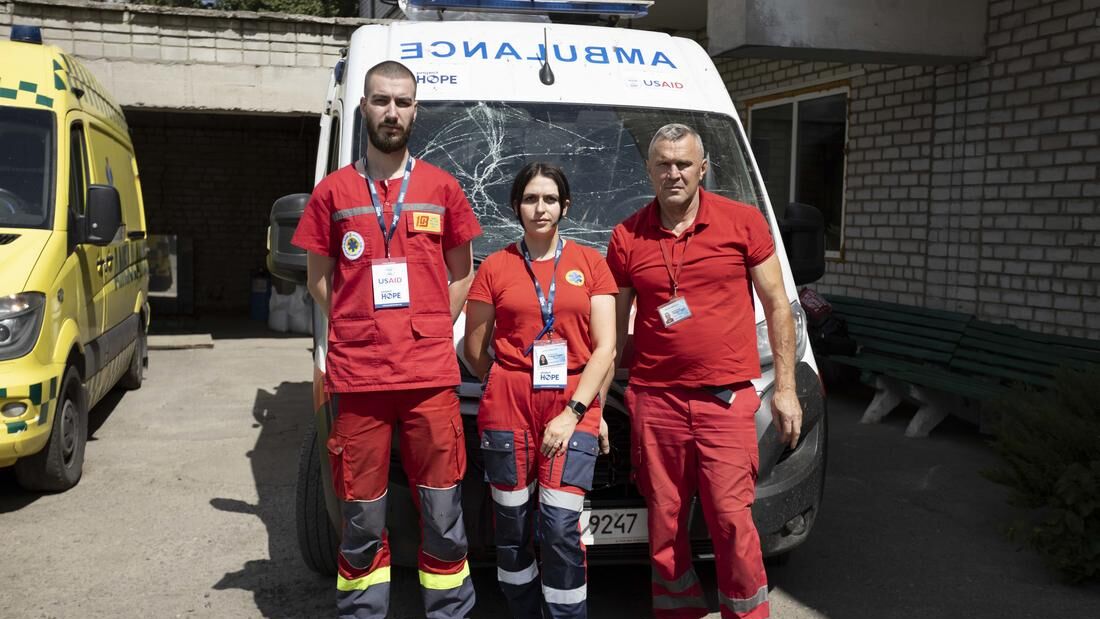In Nigeria, ‘Aunty Fati’ Helps Young Men Break the Silence on Mental Health
In northern Nigeria, young men are at increasing risk of falling into lives fraught with drug use and street violence. Meet the Project HOPE facilitator who leads a mental health group to help them steer toward healthier and more meaningful futures.
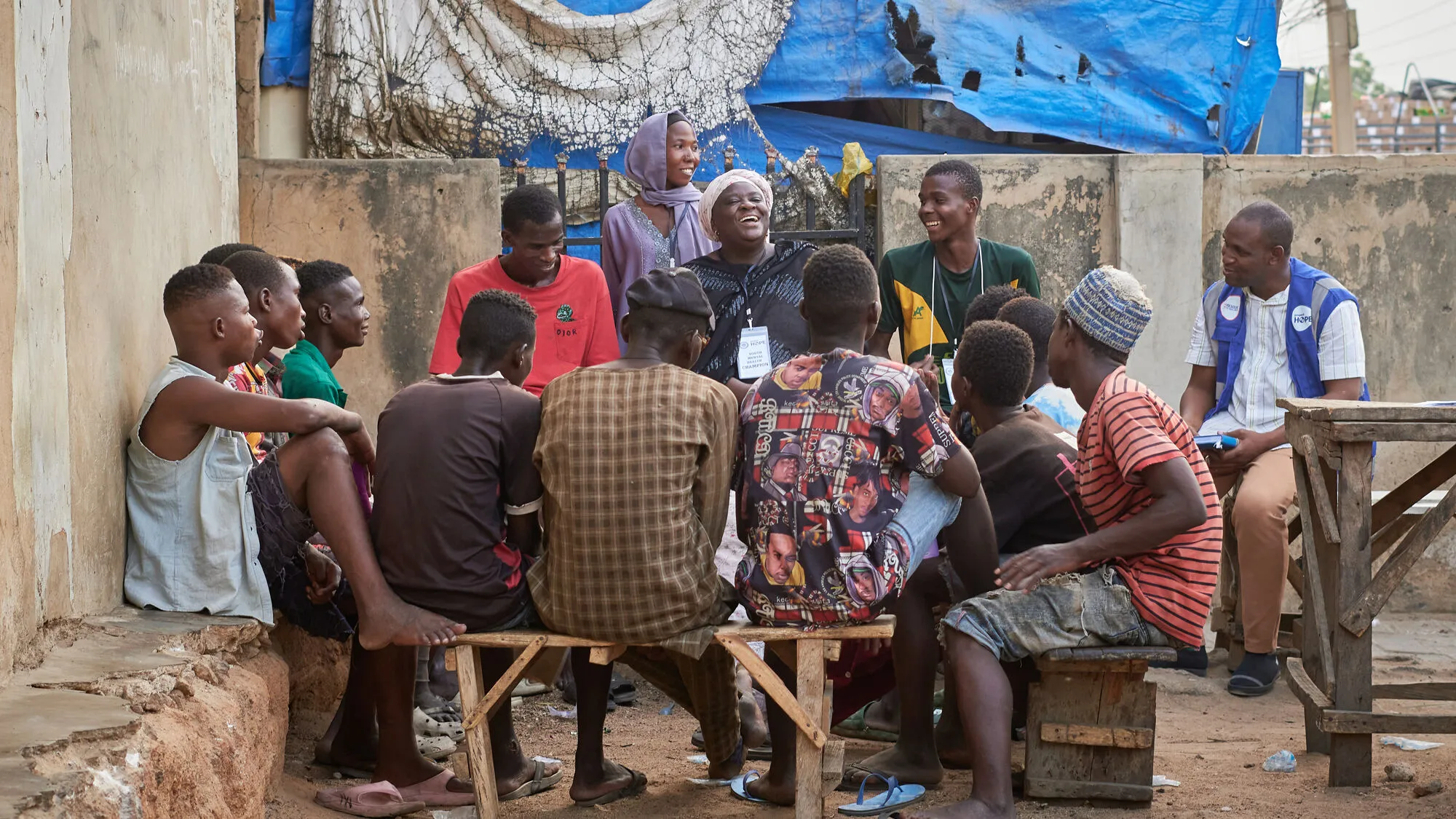
It’s 4 p.m. on a hot and dusty afternoon in Nigeria’s Kano State, and 15 young men slowly gather in the shade of an outdoor seating area near the center of the community of Sabon Gari.
They come from different backgrounds, but share the challenge of growing up with a combination of economic, social, and political factors working against them. Over time, they turned to drug use and street violence to cope with adverse circumstances and meet their basic needs — putting their physical safety and mental health on the line.
But they have found the support they need to turn their lives around, thanks to a woman named Fatima Haruna, known fondly by all as “Aunty Fati,” and her mental health group.
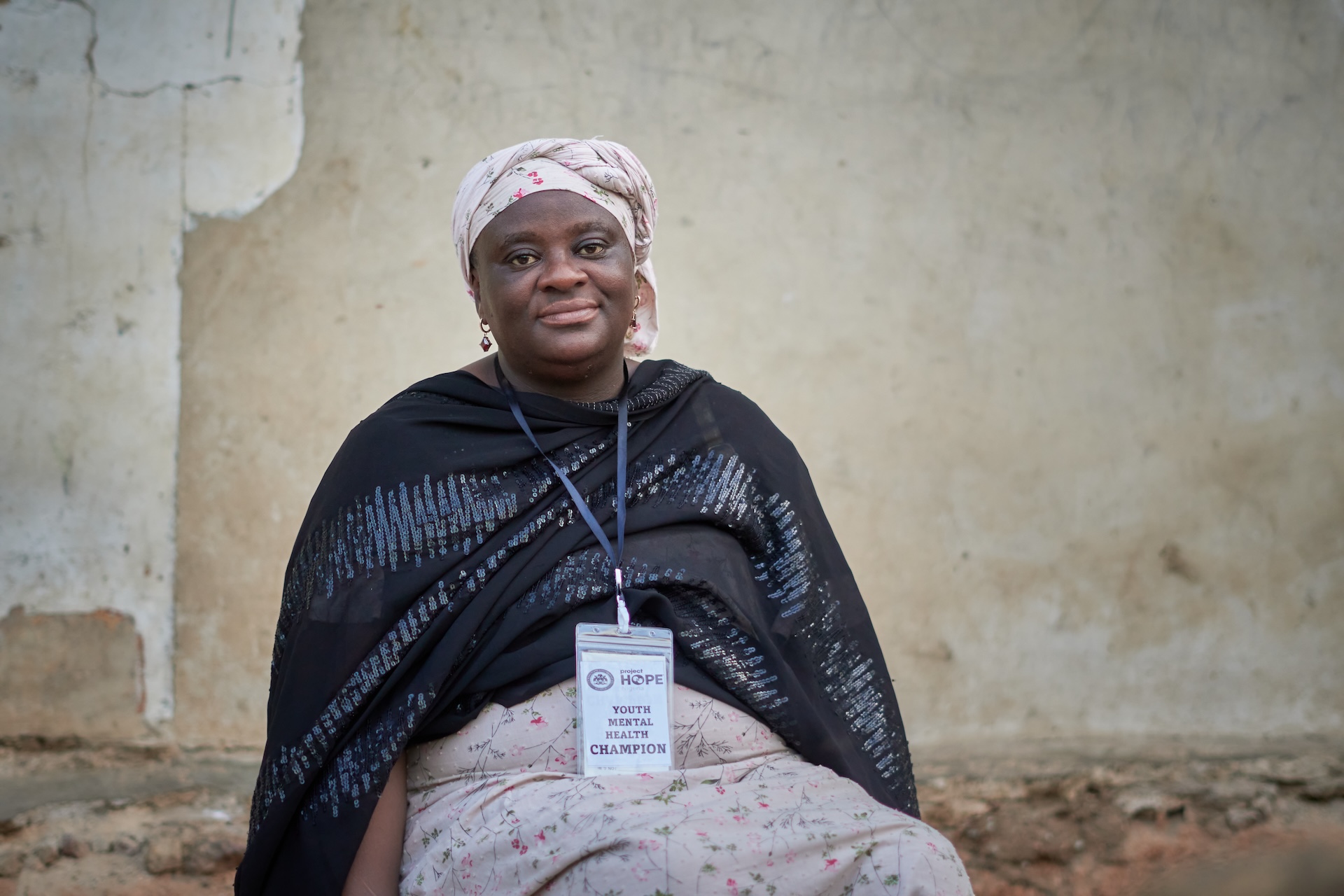
“In the course of my work as an outreach worker, I became familiar with the prevalence of illicit drug use and drug trafficking among young people, which is rising at an alarming rate,” Fati says.
To help reduce drug use and violence, and fortify mental health, Project HOPE is facilitating mental health groups led by local community members like Fati, who knew many of the participants before the group began.
“There’s an old saying: ‘Youth are the backbone of every community and the leaders of tomorrow,’” she says. “Because of this, I decided to become a facilitator for the youth mental health group, to contribute any way I can in order to positively impact their lives.”
“There’s an old saying: ‘Youth are the backbone of every community and the leaders of tomorrow.’ Because of this, I decided to become a facilitator for the youth mental health group, to contribute any way I can in order to positively impact their lives.”
The group of young men meets with Fati each week. They talk about the dangers that drug use poses to mental health, common withdrawal symptoms when trying to overcome addiction, new coping mechanisms for the challenges they face (including simple actions like deep breathing and stretching), and ways to manage feelings of anger and frustration. They also discuss how they can support one another — inviting a radical shift in an environment where conflict and division are a norm.
The group addresses other health risks associated with drug use and violence as well, such as the heightened risk of HIV. Fati provides medication for group members living with HIV and makes sure they take it.
For 18-year-old Umar Yahaya, that accountability has made a major difference in his health.
Umar has lived in Kano his whole life. With limited job opportunities, he resorted to selling drugs in order to survive, until his mother influenced him to stop. Now he’s focused on finding work and making an effort to be drug-free.
“I am HIV positive, but I am not scared because ‘Aunty Fati,’ as we fondly call her, has told me not to be stressed about it,” Umar says. “She brings our medicine for us regularly, we take it, and it works for us.”
“Umar has changed a lot since he started coming to the group,” Fati says. “He has reduced his drug use and is now adhering to his antiretroviral (ART) drugs.”
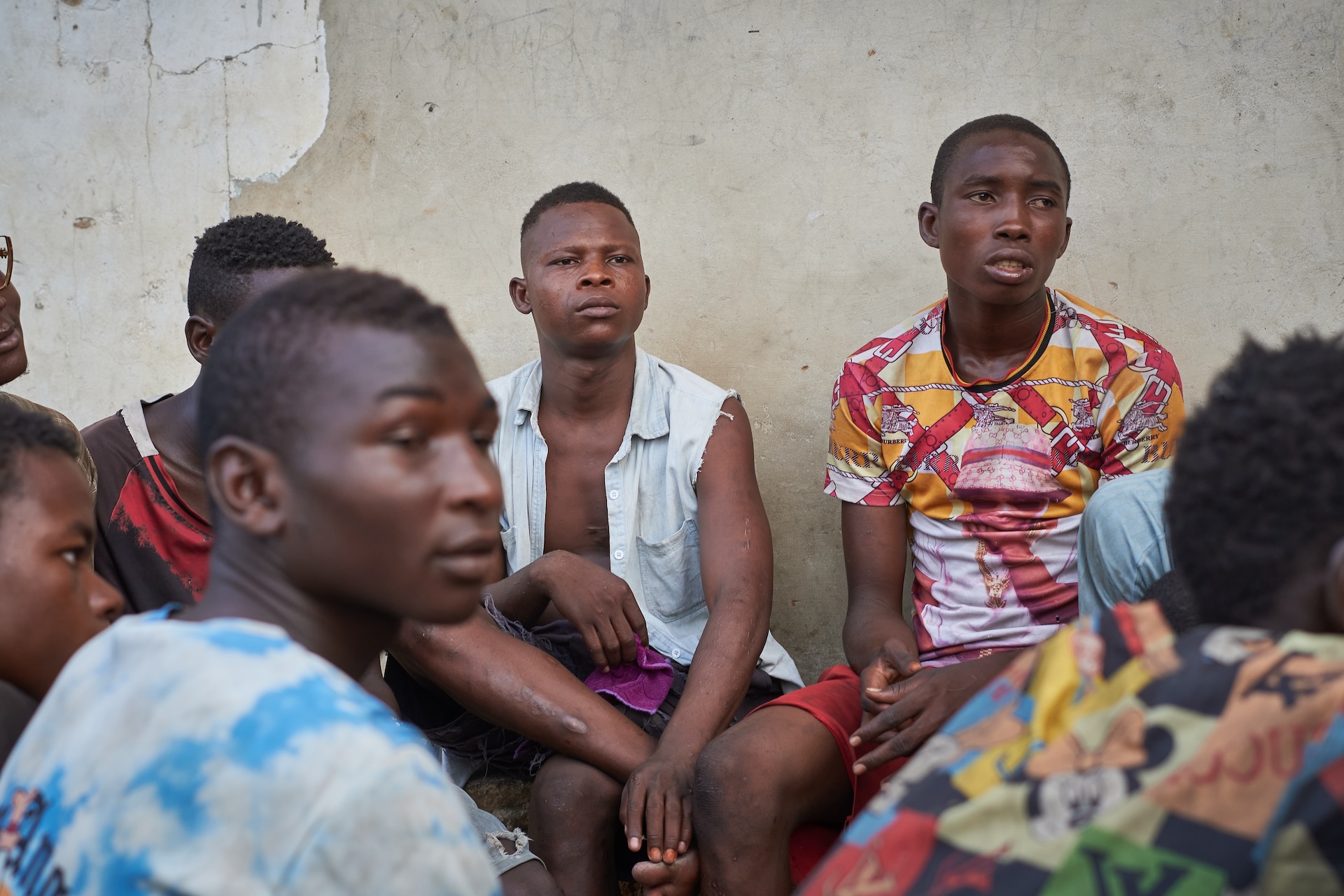
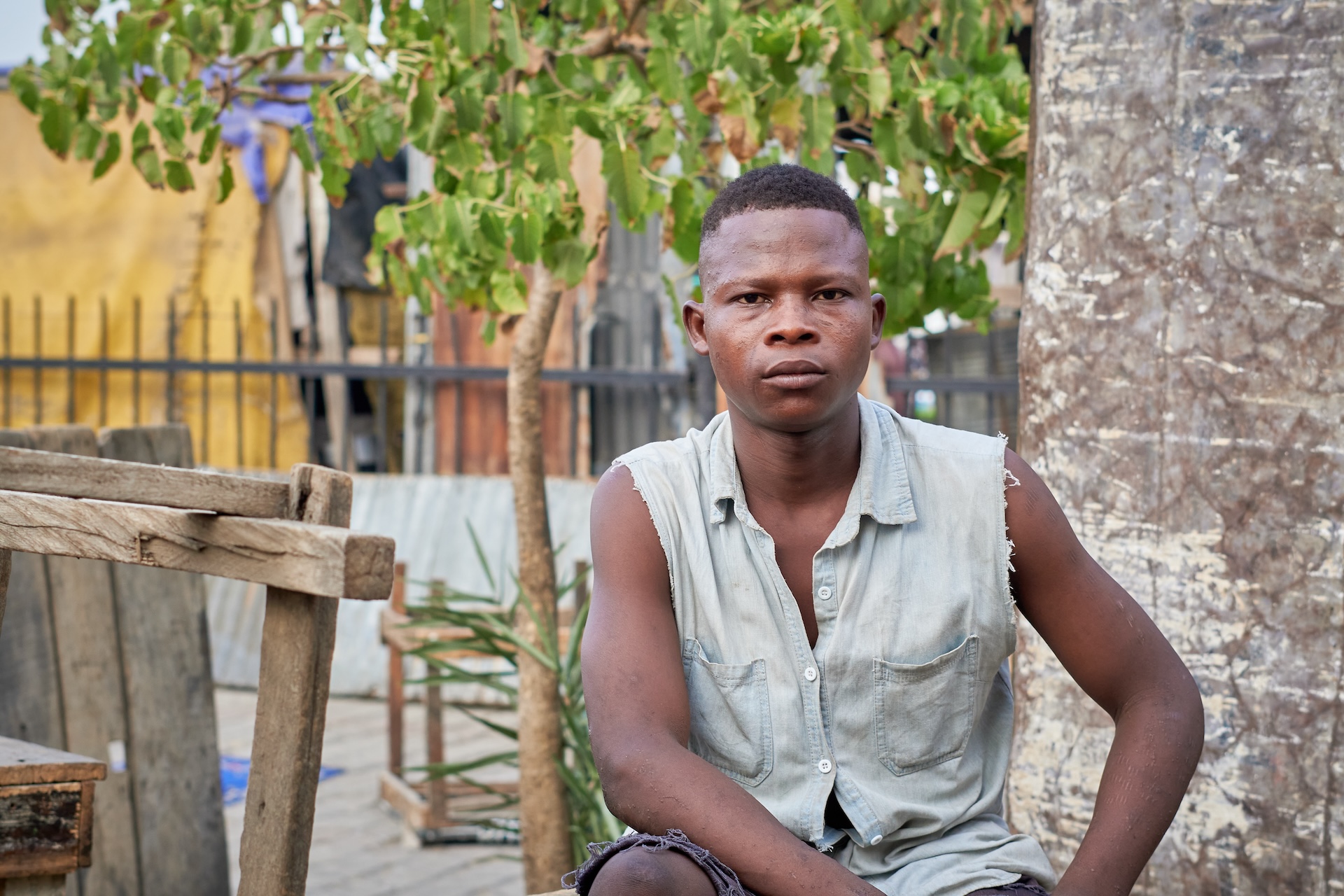
Fati says almost all of her group members have shown signs of improvement, reducing their drug use, adhering to treatment plans, and committing to healthier practices.
Abubakar Auwalu, another group member, was introduced to trading drugs by a friend. He feels less pressure to do so now that that friend moved to Lagos, and the group is helping him make new choices.
“Joining this mental health group is an attempt to better my life,” he says.
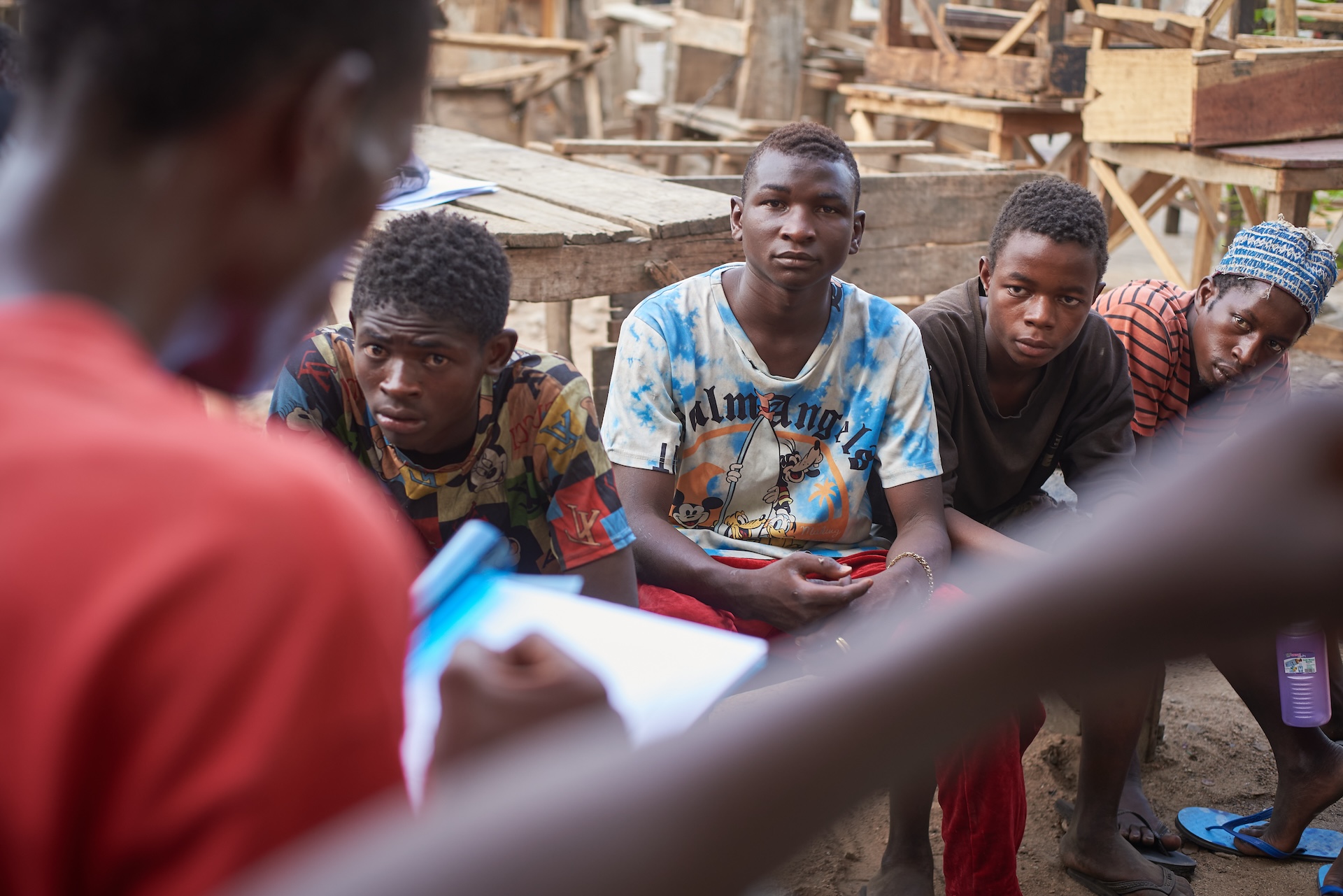
The need for mental health support among young people in Nigeria is widespread. In the last six months, Project HOPE has facilitated 19 mental health groups across Kano, Kebbi, Sokoto, and Ogun states, helping over 585 young people like Abubakar and Umar find their voice, express their feelings, and choose new paths forward.
“The most rewarding part of this work is that it’s a service to humanity,” Fati says. “You feel happy seeing them integrated back into their family and society in general. You can clearly see the change and happiness in their lives. I hope that through the mental health discussions we have held with them, they can be able to set their lives on course.”

